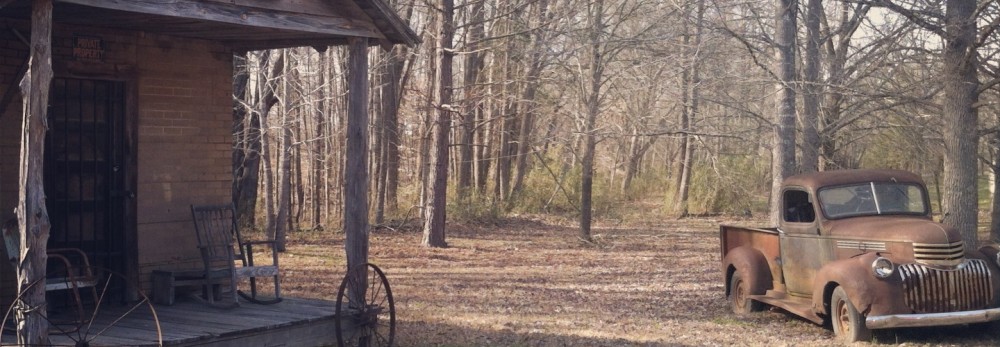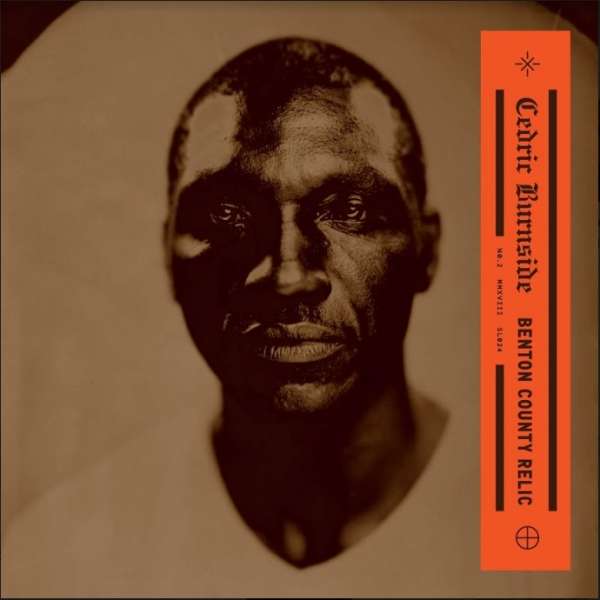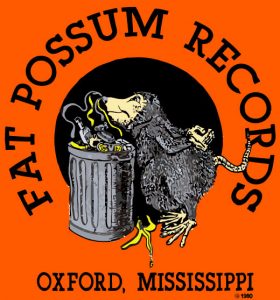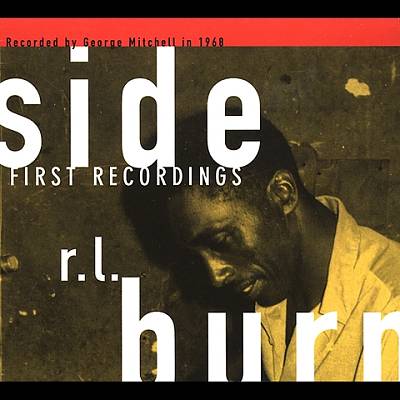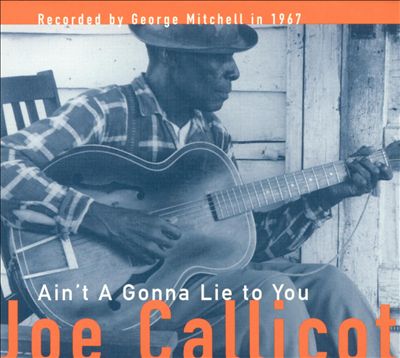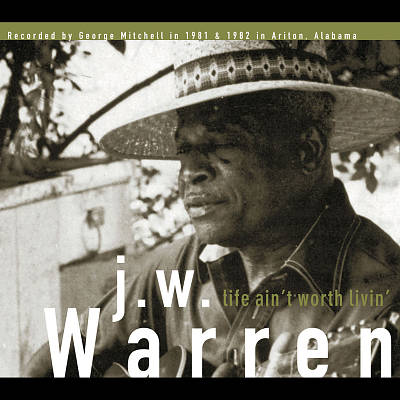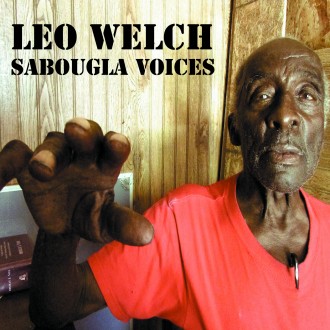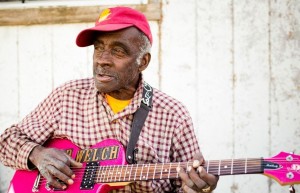Tag Archives: r.l. burnside
REAL FOLK BLUES! The George Mitchell Recordings
There was a time when all an artist would need to make a good recording was their instrument, a microphone, and a tape recorder. In fact, some of the greatest and most influential recordings of our time were made in rural areas in the back of small country stores or small cabins on equipment that was powered a car battery.  Known as “field recordings”, these recordings were usually done by folklorists determined on documenting maters of American Roots music in a natural setting.
Personally, some of my favorite field recordings where done by music historian George Mitchell. Born in Coral Gables, Florida and raised in Athens, Georgia, Mr. Mitchell has recorded hundreds of hours of music, mostly by musicians who would’ve never been heard outside of their living room if it weren’t for him. He was the first to record Hill-Country Blues guitarist R.L. Burnside in 1967 in Mississippi, a recording session that yielded some the most heart-felt acoustic Blues ever recorded. He also was responsible for some excellent late-in-career recordings of Blues legends Fred McDowell and Furry Lewis.
In 2008 Fat Possum records complied a large number of George Mitchell’s recordings for a massive 7-disc box-set simply titled “The George Mitchell Recordings Vol. 1-45”. Â While the amount of music in this collection may have been perfect for the Blues connoisseur wanting to get completely stuffed on Mitchell’s field recordings, the collection lacked a certain intimacy you get when you focus on just one single artist’s session. Â Thankfully, the good people at Fat Possum/Big Legal Mess Records realize this and over the years have released entire sessions from individual artists recorded by George Mitchell. Below are some of my very favorites…Â No studio tricks, no auto-tune, just a musician and their music.
R.L. Burnside First Recordings Recorded in 1967
A popular style of Blues played by musicians from Northern Mississippi, “Hill Country Blues” focuses more on creating a hypnotic rhythm and less on following a specific chord progression. While musicians such as Otha Turner, Jesse Mae Hemphill and Mississippi Fred McDowell (actually from Tennessee) are masters of this style, the two best known Hill Country Blues musicians are Junior Kimbrough and R.L. Burnside. Â Both Kimbrough and Burnside made their first recordings in the 1960’s with the latter recording for George Mitchell in 1967.
George Mitchell first caught wind of R.L. Burnside while recording another Hill Country Blues master, Otha Turner.  It was Turner who suggested to Mitchell that if he wanted to hear someone who could REALLY PLAY, he should check out his neighbor R.L. Burnside.  Although both Turner and Burnside where unknown to the outside world at the time they were very popular in their respective communities and masters of the their instrument.
During his session for Mitchell, Burnside performed excellent versions of Hill Country standards, “Poor Black Mattie”, Â “Goin’ Down South” and “Rollin’ and Tumblin”. He also played a slow eerie-blues entitled “Just Like A Bird Without A Feather”, which is the best track on this wonderful album.
JOE CALLICOT Ain’t Gonna Lie To You Recorded in 1967
Recorded in 1967 and reminiscent of recordings by fellow guitarist Mississippi John Hurt,  AIN’T GONNA LIE TO YOU is a mix of Blues standards and Gospel numbers.  Also like Hurt, Joe’s voice isn’t the strongest in the world but yet it wonderfully complements his soft finger-picking guitar style. A perfect example of this is Joe’s beautiful rendition of the Folk standard “Frankie and Albert”.  While Joe’s career actually began in the 1920’s and included recording sessions and performances outside of Mississippi he was never a household name and even gave up music in the 1940’s. Fortunately for us he returned to recording after meeting George Mitchell in 1967.
J.W. WARREN Life Ain’t Worth Livin’ Recorded in 1981 & 1982
 J.W. Warren was born in 1921 in Enterprise, Alabama.  Like many of the musicians recorded by George Mitchell, Warren was a farmer who mostly performed just for friends at parties and in local juke joints. The recordings on LIFE AIN’T WORTH LIVIN’ were done in Warren’s own home in Alabama by Mitchell on September 15th, 1981 and in March 27th, 1982.  Musically, Warren stuck mostly to traditional-sounding Country Blues. His powerful voice is best displayed on the tune “Hoboing Into Hollywood” and at times bares resemblance to the voice of Country Blues legend Bukka White.  Also like White, J.W. Warren was a slide guitar player who’s raw playing style helped him obtain local notoriety. He would scrap his jack-knife against the strings of his guitar to create the sound of a slide (documented here on the recording “My Mind Gets To Wandering”). Mostly a homebody, Warren never toured and rarely travelled out of his hometown. He lived out his final years at home in Ariton, AL, passing away on August 15th, 2003. Fortunately for us we can remember him through these excellent recordings.
ROBERT BELFOUR 1940-2015
Similar Artists: Junior Kimbrough, R.L. Burnside, Lightnin’ Hopkins
The Beginning: Fat Possum Records and Hill Country Blues
In 1992 a small indie label called Fat Possum Records gave the American Blues scene a much needed kick-in-the-ass when they released the debut album from 62 year-old Bluesman Junior Kimbrough. Entitled ALL NIGHT LONG, the record was met with rave reviews from both critics and Blues fans and gave Kimbrough some well deserved national attention. Shortly after the success of the Kimbrough record Fat Possum also started having success with another one of their artists, R.L. Burnside. Like Junior Kimbrough, R.L. Burnside was in his 60’s a resident of the Mississippi Hill Country and a master of a style of music called “Hill Country Blues”. Different than the well known Delta Blues style, Hill Country Blues focuses more on creating a groove and sometimes features other instruments such as Drums. With both the Kimbrough and Burnside records receiving some good press, Fat Possum began recording other Hill Country Blues musicians. Unfortunately the label quickly ran into the problem that many of the musicians they recorded were usually older and in very poor health. Sadly, many of them died before or shortly after their album got released. Down but not out Fat Possum Records kept plugging along and in 2000 they released a record by a 59 year-old construction worker named Robert Belfour.
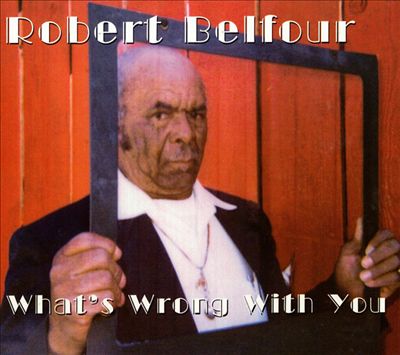 Fat Possum and Mr. Robert Belfour
Fat Possum and Mr. Robert Belfour
Robert Belfour was born in 1940 in Red Banks, Mississippi. Growing up in the Hill Country, he was surrounded by music and learned to play the guitar by watching his father play. As his interest in the guitar grew he began performing for friends and family at picnics. He continued his musical education by watching local legends like Othar Turner and Junior Kimbrough who both lived in the area and regularly performed at parties and in local Juke-Joints. Unfortunately when Robert was just 13 years old his father passed away and he was forced to get a job in order support the family. Then in 1959 Robert got married and moved to Memphis, Tennessee. He worked in construction for the next 35 years and only played music when he had time. In fact, it was until the late 80’s when he really began to take music seriously again. His first real break came in 1994 he was featured on the compilation album THE SPIRIT LIVES ON, DEEP SOUTH COUNTRY BLUES & SPIRITUALS. The recordings he contributed to the record got the attention of Fat Possum Records and in the year 2000 the label issued his debut album WHAT’S WRONG WITH YOU. A dark-acoustic record, WHAT’S WRONG WITH YOU showcased Roberts percussive guitar work and rich deep voice. The album featured a mixture of originals and covers, many of which had been made popular by other Hill Country Blues musicians. The album was a success with many Blues enthusiasts and introduced Robert to an international audience.
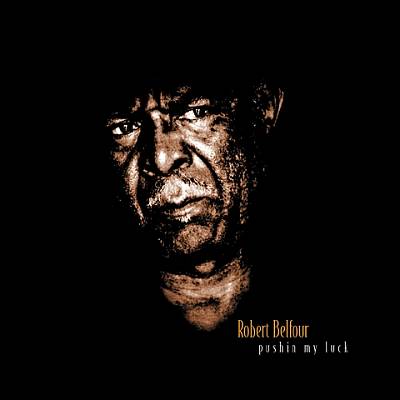 In 2003 Robert released his second album on Fat Possum, the humorously titled, PUSHIN’ MY LUCK. Like it’s predecessor, the album was primarily acoustic and pleased both fans and critics. Internationally, Robert’s popularity grew and he started to play a number of European Blues festivals. Back in the states, Robert kept his home in Memphis and continued to be a regular performer on the Juke-Joint scene in Clarksdale, Mississippi. A dynamic performer into his 70’s, Robert’s shows would usually last late into the the night and sometimes be as long as three hours! Unfortunately, all good things must come to an end. Robert Balfour passed away at his home in Memphis on February 25, 2015. Fortunately for us (and thanks to the good folks at Fat Possum Records) his recordings are still readily available and can be found on iMusic, Spotify, Amazon, and at your local record store.
In 2003 Robert released his second album on Fat Possum, the humorously titled, PUSHIN’ MY LUCK. Like it’s predecessor, the album was primarily acoustic and pleased both fans and critics. Internationally, Robert’s popularity grew and he started to play a number of European Blues festivals. Back in the states, Robert kept his home in Memphis and continued to be a regular performer on the Juke-Joint scene in Clarksdale, Mississippi. A dynamic performer into his 70’s, Robert’s shows would usually last late into the the night and sometimes be as long as three hours! Unfortunately, all good things must come to an end. Robert Balfour passed away at his home in Memphis on February 25, 2015. Fortunately for us (and thanks to the good folks at Fat Possum Records) his recordings are still readily available and can be found on iMusic, Spotify, Amazon, and at your local record store.
LEO “BUD” WELCH: Sabougla Voices
Leo “Bud” Welch: SABOUGLA VOICE Big Legal Mess/Fat Possum
For Fans of: Junior Kimbrough, R.L. Burnside, The White Stripes, Rev Louis Overstreet
Guitarist Leo “Bud” Welch was born in Sabougla, Mississippi in 1932. A natural musician, Leo taught himself to play the guitar by learning songs off the radio. As soon as he built up a small repertoire he began performing at parties and local juke-joints. Unfortunately work as a musician was inconsistent and even though he was incredibility talented he was unable to make a living playing music. In order to make ends-meet Leo ended up taking a job as a logger and had to resort to playing music only when he had free time. Then in 1975 Leo switched from playing Blues to playing Gospel. He started performing in churches all over Mississippi and even began hosting a local Gospel Television show. Even though he now considered himself a Gospel musician he still kept in touch with the local Blues scene. As time went on he heard that Blues musicians like Junior Kimbrough were having late-in-life success working with Fat Possum Records. Inspired by this he called up the label and requested an audition. Label owner Bruce Watson agreed to hear Leo play and ended up signing him on the spot. Now thanks to the good people at Fat Possum and Big Legal Mess Records the world finally gets to hear one of the treasures of Mississippi, guitarist Leo Welch.
The album is called Sabougla Voices and the music on it is honest no-frills Mississippi Gospel. Throughout the albums ten tracks Leo’s plays the guitar with the energy of someone half his age. Songs like “Praise His Name” and “You Can’t Hurry God” are upbeat and show us the lines between Blues and Gospel are blurry at best. In fact, if you were to change a few lyrics, these songs could easily be for Saturday night instead of Sunday morning. Another standout track on the record is the acoustic “Me and My Lord”. Sounding a little like Pops Staples, Leo does call and response with his backup singers while playing acoustic guitar. This song is given an extra push by Leo’s backing band which shows it’s professionalism by settling into a nice groove and not over playing.
Even though all of the music on Sabougla Voices is solid, the album’s strongest track is easily the slow and eerie blues tune “A Long Journey”. Beautifully recorded, this song is about accepting the fact that death is part of life. That being said, hopefully Leo will be still be around for a long time as he deserves to enjoy every minute of his new found success! He’s got gigs booked across the U.S. this summer and is even scheduled to perform in Europe! Not bad for someone that at one point had to turn down an audition with B.B. King because he couldn’t afford to travel to Memphis. This album is excellent and belongs in your collection.
